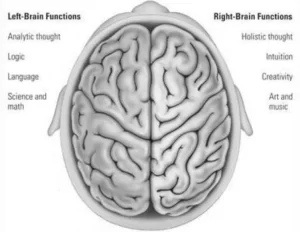Behind every smile there’s teeth. — Confucius
When it comes to developing new healthy habits, I believe teeth are always secondary. It indicates that we are causing long-term damage to our teeth while developing good habits without realizing it.
I like sharing healthy habits that can help you have more energy and be more productive in your everyday life. Brushing your teeth is one of the healthy routines that may help you maintain your overall health.
I know it seems counterintuitive that a healthy habit can damage teeth. It is supposed to help to boost your overall health. However, certain good habits are harmful to your teeth.
The following 5 healthy habits that can harm your teeth may shock you.
5- Lemon water
I have been drinking lukewarm lemon water for many years, first thing in the morning. I make sure not to consume more than half lemon a day, and it’s just a gut feeling to destroy my tooth enamel.
Benefits of Drinking Lukewarm Lemon Water in the Morning
Lukewarm water has many health benefits: strengthening the immune system, boosting the digestive system, cleaning toxic, etc. I wrote detailed articles here — 9 reasons to drink lemon water.
Lemon water is no doubt helpful to boost your overall health, but it can harm your tooth.
If you develop a habit of sipping lemon water all day, you are actually bathing your teeth with acidic fluid.
Here is a quick exercise, if you notice your teeth are pretty sensitive to cold and hot, immediately reduce the citric fruits and see your dentist.
4- Wine
In wine there is a health. — Pliny. the Elder
Many studies show that wine in moderation has many health benefits; for example, it can help to reduce the danger of heart attack and diabetes.
Red wine is one of the best sources to improve your heart health.
If you are sipping the wine for a couple of hours, you are constantly bathing your teeth with alcohol which is detrimental to teeth. Alcohol can speed up gum disease and can damage the teeth.
White wine has a higher pH and causes more and faster damage. — Van Drie
3- Chewing on ice
Chewing on ice can harm your teeth like chipped or crack. It can also cause decay of the enamel, increasing tooth sensitivity to handle hot and cold fluids. Ice is usually ph-neutral.
Chewing on ice can damage dental procedures like a filling, root canal, crowns, and veneers, so if you developed the habit of chewing on ice, especially in hot weather, its time to break that healthy habit to save your teeth.
2- Brushing teeth after each meal
According to American Dental Association (ADA), you should brush your teeth twice for 2 minutes each day. ADA recommendation according to your age.
Brushing your teeth is great for your overall health. Do you have a habit of brushing your tooth after every meal? Maybe it’s time to break this habit.
Do not start brushing your teeth immediately after consuming citric fruit (lime, lemon, orange, etc.). The acidic properties of citric fruits can temporarily soften the tooth enamel, which can harm the tooth if you brush right away.
Brushing your teeth after consuming citrus fruits will cause the removal of the tooth enamel, leading to increased teeth sensitivity.
The best practice is to wait for 45–60 minutes after each meal. I highly recommend consuming a high calcium diet, for example, dairy or cheddar chees that will raise the pH level in your mouth to release calcium to fight plaque.
1- Pure water
Water is one of the best drinks on the planet. What do you think which one is more tooth-friendly: bottle or tap water?
Nowadays, many people prefer to drink only bottled water if you are one of them, its time to learn that a water bottle is detrimental to your teeth in the long term.
The lack of fluoride in bottled water can harm your teeth. Many health organizations endorse fluoridated tap water to reduce tooth decay in children and adults.
The bottom line
Many studies show that 98% of dental diseases can be avoided by brushing your teeth twice a day with fluoride toothpaste.
Make sure to develop a habit of floss once a day and regularly see your dentist for prevention!
Disclaimer: Please note that this article is not health advice. It is for information purposes only. The content reflects my review of credible scientific papers.




